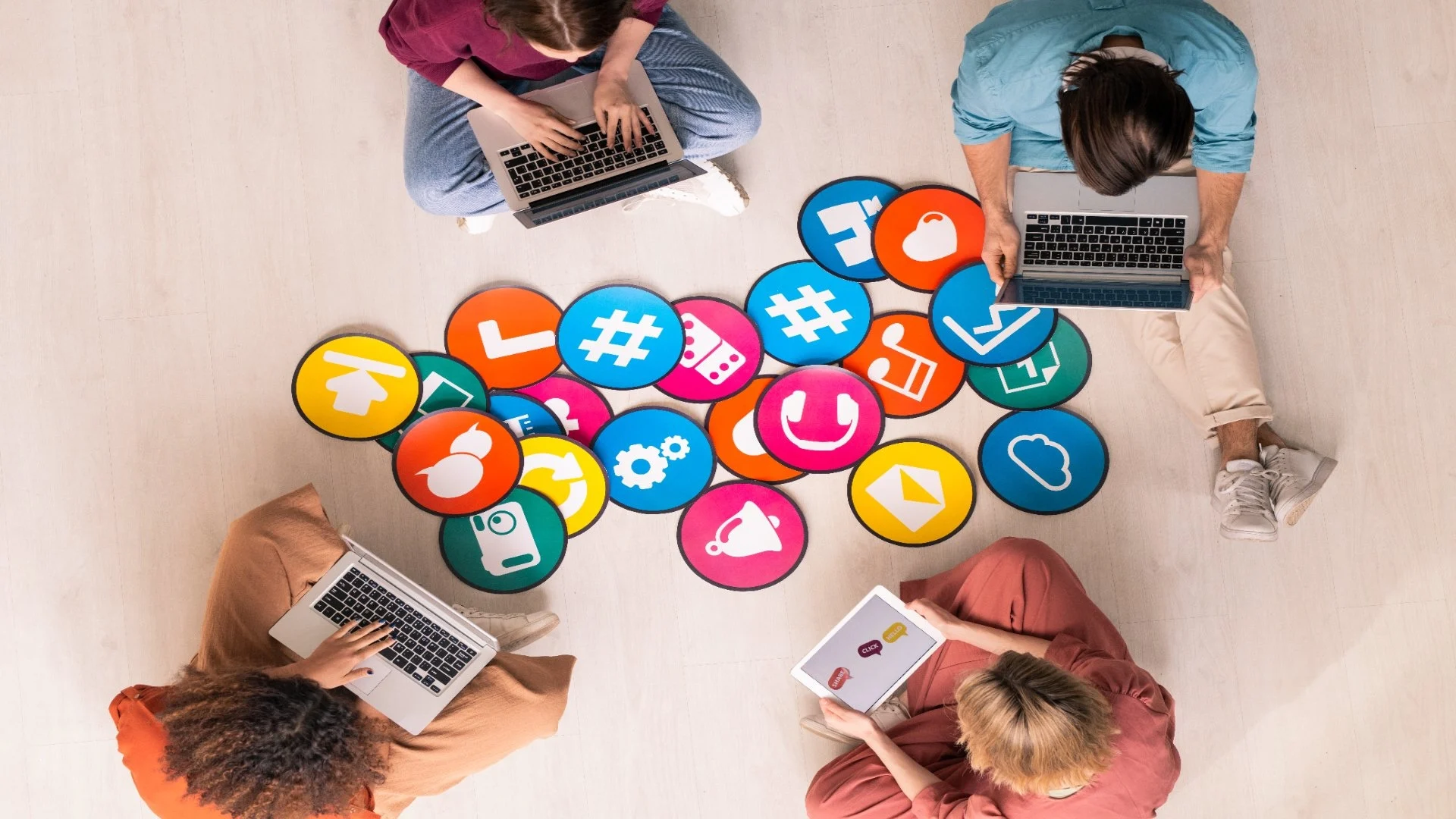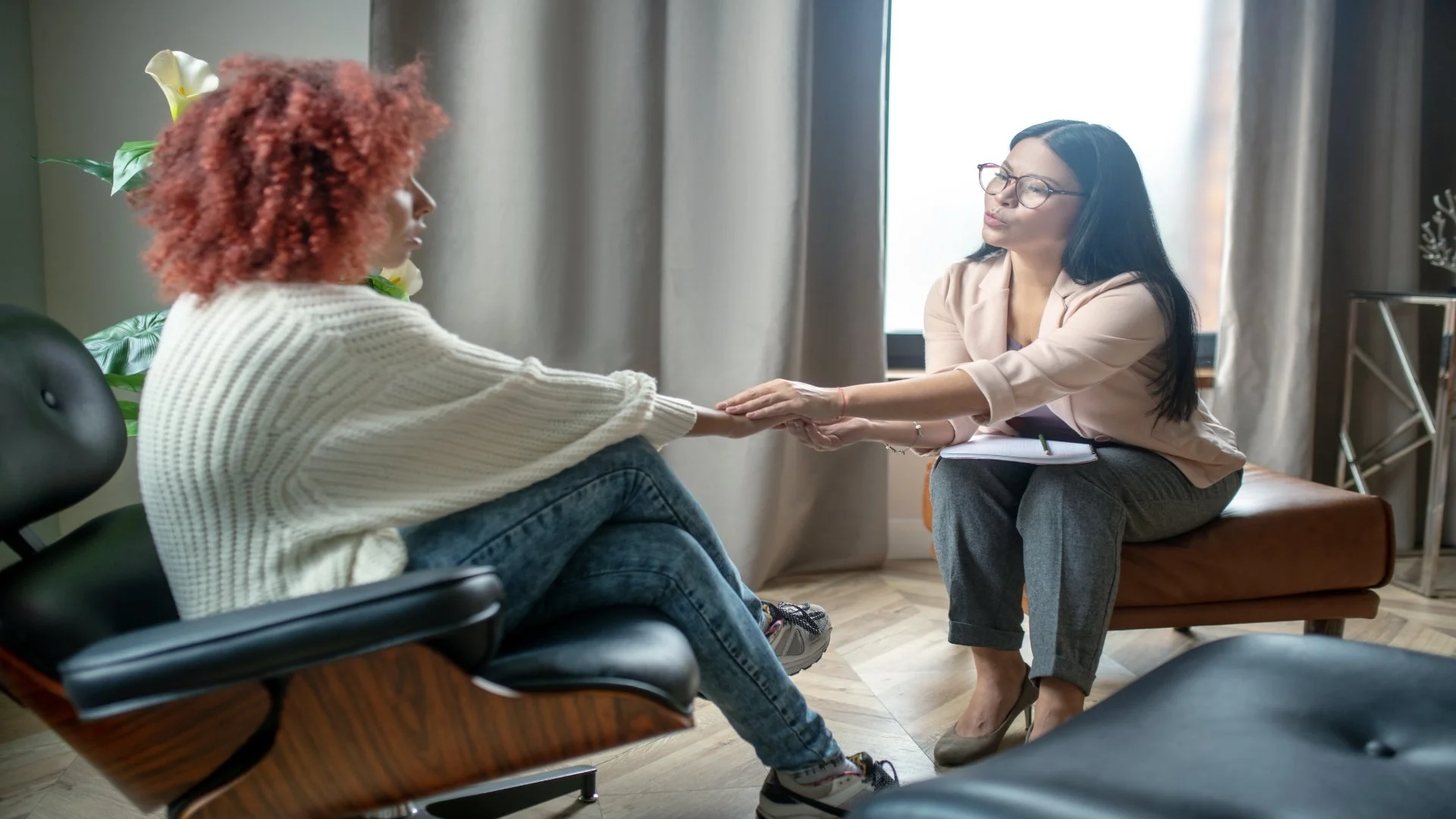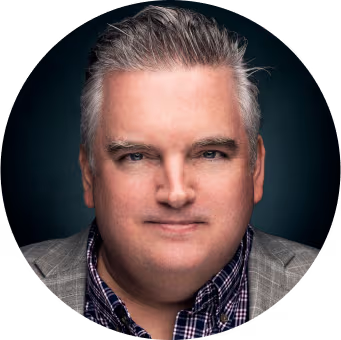Mental Health
OCD and Social Media

Explore how digital platforms influence mental health, examining the link between OCD and social media and strategies to manage compulsive online behaviors.
Excessive social media use can make obsessive thoughts and compulsive behaviors feel out of control. If you find yourself repeatedly checking, scrolling, or seeking reassurance online, it can heighten anxiety and disrupt daily life.
At The Edge Treatment Center, we understand how OCD and social media interact to affect your mental health. You don’t have to face this alone—our compassionate team offers support and practical strategies to manage these triggers, helping you regain control, reduce compulsions, and foster healthier, more balanced online habits.
Understanding OCD in the Digital Age

Obsessive-Compulsive Disorder (OCD) is a mental health condition characterized by persistent, unwanted thoughts (obsessions) and repetitive behaviors or mental acts (compulsions) performed to reduce anxiety.
Traditionally, OCD involved physical rituals—like excessive handwashing or checking locks—but digital platforms have introduced new triggers that can be just as impactful.
Digital Triggers for OCD
Social media platforms provide constant opportunities for engagement. Notifications, likes, and comments may seem harmless, but for someone with OCD, they can intensify compulsive behaviors.
You might repeatedly refresh your feed, overanalyze messages, or compare yourself to online profiles. Over time, these actions reinforce obsessive thought patterns, creating a cycle that is difficult to break.
Research Insights
Studies show that individuals with OCD experience heightened anxiety and compulsive checking when using social media. Recognizing how technology interacts with your symptoms is crucial.
At The Edge Treatment Center, we help you understand these triggers and develop strategies to reduce their impact while maintaining healthy online habits.
How Social Media Amplifies OCD Symptoms
Social media can unintentionally strengthen obsessive thoughts and compulsive behaviors through notifications, endless scrolling, and social comparison. Recognizing these triggers helps you take steps to reduce their impact on your mental health.
Endless Scrolling and Compulsive Checking
Social media is designed to capture your attention. Algorithms encourage endless scrolling, while notifications trigger your brain’s reward system.
If you struggle with OCD, this can worsen compulsive checking. The temporary relief you feel after checking reinforces the cycle, making it harder to resist compulsive behaviors.
Social Comparison
Curated online content often portrays idealized lifestyles, leading to feelings of inadequacy. For those with OCD, this can trigger obsessive comparisons and repeated reassurance-seeking. You may feel compelled to review profiles, posts, or comments to confirm that you are “doing well,” which increases anxiety over time.
Seeking Reassurance
Digital platforms offer constant opportunities for reassurance-seeking behaviors. Overanalyzing messages, posts, or comments can temporarily calm anxiety, but it reinforces compulsive thought patterns.
For example, you might repeatedly check notifications to ensure no one is upset with you, creating a loop of temporary relief followed by renewed anxiety.

We’re Here To Help You Find Your Way
Would you like more information about mental health or drug addiction? Reach out today.
The Neuroscience Behind Digital Triggers
The way your brain responds to social media plays a major role in compulsive behaviors linked to OCD. By understanding the neurological mechanisms, you can better address the underlying causes of these triggers.
Brain Chemistry and Rewards
When you engage with social media, your brain releases dopamine, the neurotransmitter linked to reward and pleasure. Each notification, like, or message acts as a small reward, reinforcing repetitive checking behaviors.
OCD and Anxiety Circuits
In individuals with OCD, the orbitofrontal cortex and anterior cingulate cortex—areas associated with obsessive-compulsive behaviors—become hyperactive. Digital cues, like unread messages or notifications, may feel urgent and impossible to ignore, intensifying compulsions.
Parallels to Digital Addiction
Digital addiction and OCD share a similar cycle: obsessive thought followed by compulsive action. Over time, this strengthens neural pathways, making compulsive behaviors automatic and difficult to interrupt.
Implications for Treatment
Understanding these neurological mechanisms allows us at The Edge Treatment Center to create personalized therapy plans. By targeting the brain circuits involved in OCD, we help you develop healthier responses to digital triggers, regain control, and reduce compulsive behaviors.
Coping Strategies and Therapeutic Interventions

Managing OCD in the digital age requires both professional guidance and practical strategies. Effective interventions, including therapy, mindfulness, and structured digital habits, can help you regain control over compulsive behaviors.
Cognitive Behavioral Therapy (CBT)
CBT helps you identify obsessive thoughts and challenge their accuracy, replacing them with healthier patterns. Through CBT, you can learn to reduce compulsive checking and social comparison triggered by social media.
Exposure and Response Prevention (ERP)
ERP, a specialized form of CBT, involves gradual exposure to anxiety-provoking situations while resisting compulsions. For example, you may learn to tolerate unread messages or delayed responses without checking repeatedly. ERP reduces the power of triggers over time, helping you regain control.
Mindfulness Practices
Mindfulness teaches you to observe obsessive thoughts without acting on them. Guided meditation or focused breathing exercises can interrupt compulsive cycles and reduce anxiety. Practicing mindfulness while online can make social media interactions less triggering.
Digital Detox and Structured Use
Setting boundaries is crucial. Limit notifications, schedule specific times for social media, and take short breaks from screens. At The Edge Treatment Center, we guide you in creating a structured digital routine that supports your recovery while maintaining social connections.
Holistic Support
At The Edge Treatment Center, we incorporate holistic approaches to support your emotional well-being alongside traditional therapy.
Art Therapy
Art therapy provides a safe outlet for self-expression, allowing you to explore thoughts and feelings visually. This creative process can reduce stress, improve emotional awareness, and help process challenging experiences.
Music Therapy
Music therapy uses sound and rhythm to promote relaxation, reduce anxiety, and enhance mood. Listening, creating, or engaging with music can help you regulate emotions and foster a sense of calm.
Guided Relaxation Exercises
Guided relaxation and mindfulness exercises teach you to stay present, manage stress, and reduce compulsive behaviors. These practices complement other therapies, creating a well-rounded path to emotional balance and recovery.

We’ll Lead You to New Heights
Do you have more questions about mental health or drug addiction? Reach out.
Seeking Help at The Edge Treatment Center
You don’t have to face OCD and social media triggers alone. At The Edge Treatment Center, we provide personalized care and support to help you reduce compulsive behaviors and improve your mental health.
Personalized Treatment Plans
At The Edge Treatment Center, we assess your unique triggers and challenges to develop a treatment plan tailored to your needs. Whether your compulsions are primarily digital or extend to other areas of life, we address both symptoms and underlying causes.
Expert Team

Our experienced therapists, psychiatrists, and support staff specialize in OCD and digital addiction. We combine evidence-based treatments, like CBT and ERP, with holistic practices to support overall well-being.
Supportive Environment
Recovery is challenging, but you don’t have to face it alone. At The Edge Treatment Center, we provide a safe, understanding environment where you can explore your behaviors without judgment. You’ll receive guidance, encouragement, and practical tools to regain control over your life.
Taking the First Step
Reaching out for help is the most important step toward healing. Contact us today to learn how we can help you manage OCD and social media triggers. With the right guidance, it’s possible to reduce compulsive behaviors, alleviate anxiety, and develop healthier online habits that enhance your life.
OCD and Social Media Taking Over Your Life? We Can Help You Regain Control
If compulsive social media use is intensifying your OCD, you don’t have to face it alone. At The Edge Treatment Center, we provide compassionate, personalized care to help you manage triggers, reduce compulsive behaviors, and restore balance in your life.
Our expert team combines evidence-based therapy, holistic support, and practical strategies to guide you toward recovery. Taking the first step can feel challenging, but with the right support, it’s possible to regain control, improve your mental health, and develop healthier online habits for a better quality of life. Contact us today.

We’re Here To Help You Find Your Way
Do you need advice about mental health or drug addiction? Reach out today.
How Does Social Media Contribute to OCD Symptoms?
Social media can worsen OCD by encouraging repeated checking, reassurance-seeking, and social comparisons. Notifications, likes, and comments act as triggers that temporarily relieve anxiety but reinforce compulsive patterns, making obsessive thoughts more persistent and difficult to control over time.
What Are the Signs that Social Media Use Is Affecting My Mental Health?
Signs include anxiety when offline, compulsive checking of notifications, overanalyzing posts or messages, frequent comparison to others, and neglecting responsibilities or personal care. These behaviors suggest that social media is increasingly impacting your mental well-being and reinforcing obsessive-compulsive tendencies.
Can Digital Detox Help in Managing OCD Symptoms?
Yes. Taking breaks from social media or reducing screen time can lower anxiety, interrupt compulsive checking cycles, and help you regain control over obsessive thoughts. Structured digital routines and mindful online habits support healthier engagement and improve long-term mental health outcomes.
What Treatment Options Are Available for OCD Related to Digital Behaviors?
Effective treatments include Cognitive Behavioral Therapy (CBT), Exposure and Response Prevention (ERP), mindfulness practices, and holistic support. These interventions help you manage digital triggers, reduce compulsive behaviors, and develop coping strategies that foster healthier online engagement and overall emotional well-being.
How Can I Support a Loved One Struggling with OCD and Social Media?
Offer understanding and patience, avoid judgment, and encourage them to seek professional help. Support them in setting digital boundaries, practicing coping strategies, and connecting with experts at The Edge Treatment Center, ensuring they receive guidance tailored to managing OCD and online triggers.

We’re Here To Help You Find Your Way
If you or a loved one is struggling with addiction, there is hope. Our team can guide you on your journey to recovery. Call us today.
Written by
 Brian Moore
Brian MooreContent Writer
Reviewed by
 Jeremy Arzt
Jeremy ArztChief Clinical Officer
Mental Health
October 26, 2025
